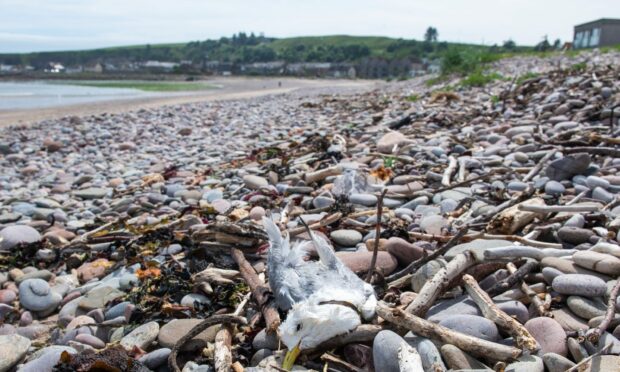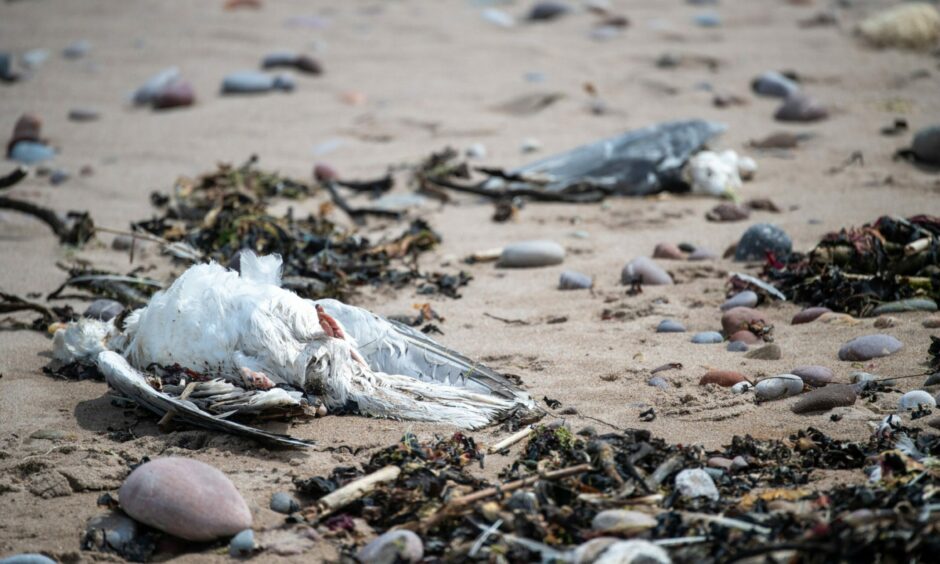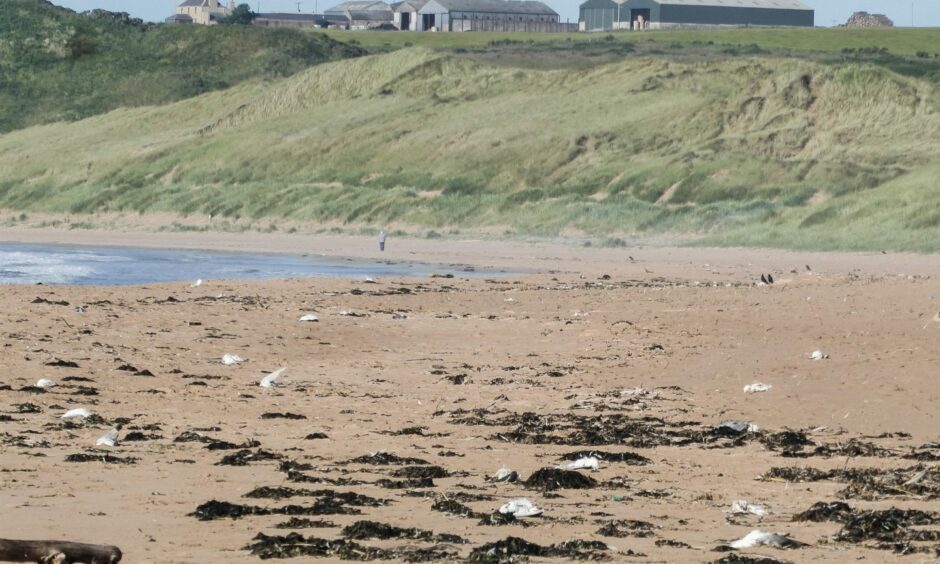Walkers, day-trippers and locals across Aberdeenshire are being urged to help track bird flu.
The region has today been described as a “hotspot” for avian flu, and now RSPB Scotland is asking for assistance to track just how widespread the latest outbreak is.
Claire Smith, a senior policy worker for the charity, urged people to download the BirdTrack app and log any dead birds they see while out and about.
It comes after more than 1,000 dead birds were cleared from beaches across the region in just three days earlier this month.
This year’s outbreak has raised concerns after more than 230,000 birds were killed last December because of the virus in Aberdeenshire alone.
Bird numbers unable to recover from yearly bird flu
Ms Smith told BBC’s Good Morning Scotland: “It is really worrying because we are seeing lots of birds at sites being hit for the second or third year in Scotland.
“And these are already birds that are under lots of other pressures and were already having population declines.
“Then suddenly, bird flu hit them.
“They’re not species that are just going to bounce back. Lots of these birds take three, four or five years until they start producing chicks, and they might only produce one or two chicks a year.
“So this is something that could take years and years for them to recover from.”
The bird flu problem could be so bad that Ms Smith believes some species could see a “local extinction.”
What to do if you find a dead bird?
People have been urged to not touch or pick up any dead or visibly sick birds, as wild birds can carry several diseases that are infectious to people.
They have also been advised to keep pets away from any dead or sick birds and don’t touch wild bird feathers or surfaces contaminated with droppings.
If you find a single dead bird of prey, swan, goose, duck or gull, or five or more dead wild birds of any other species, this should be reported on the UK Government’s report dead wild birds webpage.


